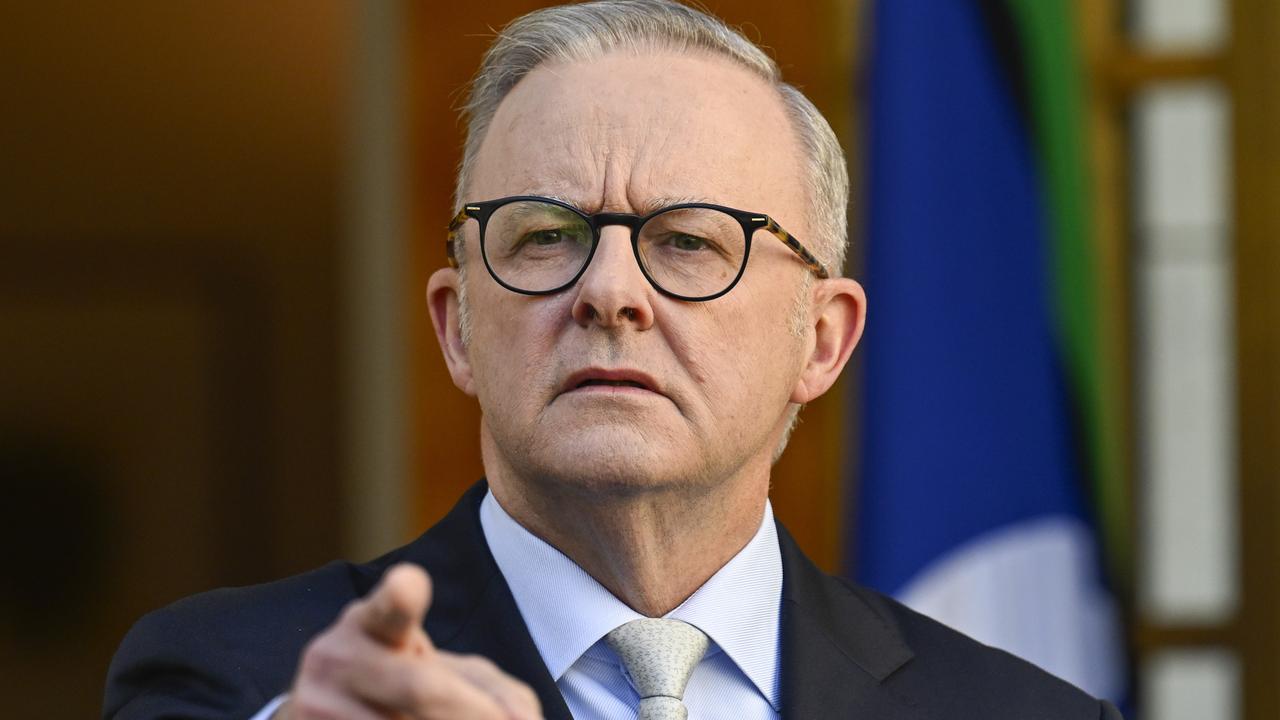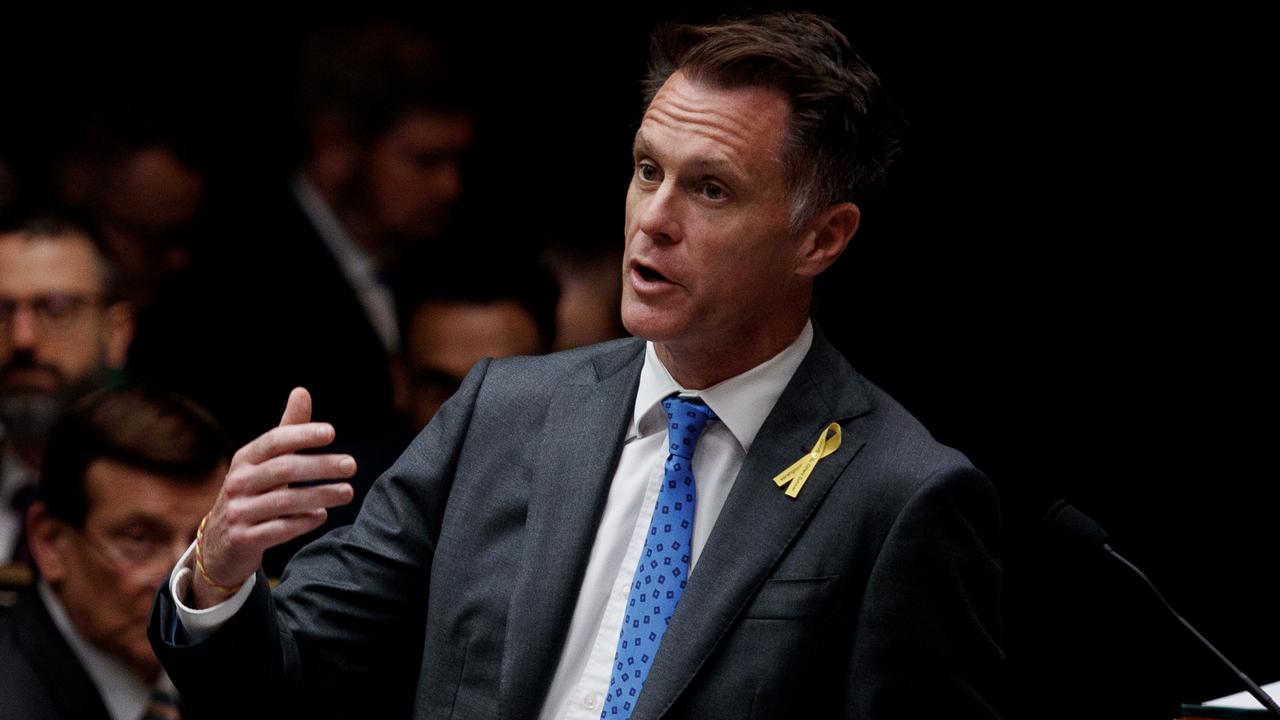Richard Marles was personally consulted over decision to stop publishing details of politicians’ VIP flights
Newly revealed documents show Deputy Prime Minister Richard Marles was personally involved in the decision to stop publishing VIP flight details.
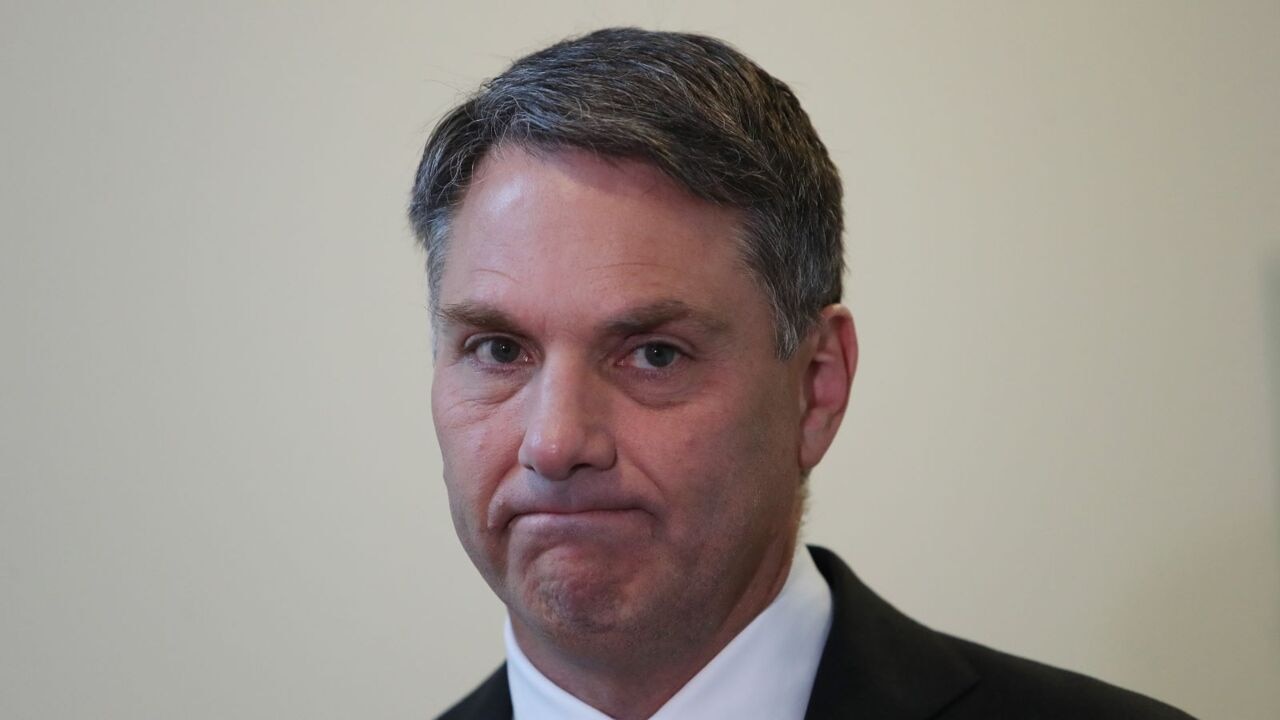
Deputy Prime Minister Richard Marles was personally consulted over the decision to stop publishing where politicians are flying on VIP flights during the same period he personally ran up a $3.6 million bill.
New documents obtained under freedom of information laws have revealed that the Australian Federal Police conducted the security review at the request of the government and in consultation with Mr Marles.
As a result, the passenger manifest and destination of VIP flights are now being censored for the first time in half a century.
Greens Senator David Shoebridge said the new documents raised fresh questions.
“The Defence Minister, as one of the biggest customers of these expensive VIP flights, had a direct interest in this and has clearly benefited from the change in the rules,” he said.
“That interest absolutely should have been made clear when his office was pushing to keep the details of its boss’s VIP travel secret.”
Separately, the Albanese government has also stopped publishing details of MPs’ domestic travel, cabcharge use and travel allowances for the last year, citing an IT malfunction.
News.com.au revealed on Monday that Mr Marles had spent over $3 million but was refusing to say where he took the VIP flights or who was on board, citing security concerns.
“All travel conducted by the Deputy Prime Minister either in his role as Defence Minister or as Acting Prime Minister is in accordance with the relevant guidelines and security procedures,” a spokeswoman said.
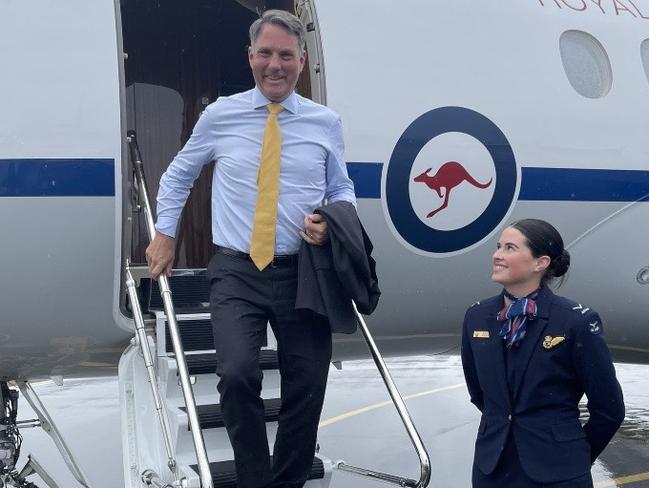
Deputy PM asked AFP to review guidelines
In an email marked “Security consultation” and sent on November 8, 2022, a staffer in Mr Marles’ office noted that the Defence Minister had “asked the Chief of Air Force to engage with the AFP to review the Special Purpose Aircraft Guidelines”.
“The AFP have provided the below advice, in which they have indicated their preliminary view that the level of detail contained within the SPA report should be reviewed from a security perspective,’’ the email stated.
“Given the below, the Deputy Prime Minister has asked the Chief of Air Force to engage with the AFP to review the SPA Guidelines, with a particular focus on the information contained within the SPA reports.
“The Deputy Prime Minister and the government more broadly are keen to ensure that the need to manage security considerations is balanced with the need to remain accountable and transparent in the use of a public asset.”

Secret AFP review did not consider transparency
The trove of documents also reveals that AFP Commander Michael Chew presented a briefing paper to the Security Coordination Group in March of 2023.
It claimed the current guidelines were not “fit for purpose in regards to protecting security sensitivities, including protecting pattern of life data for passengers”.
However, it also stated that the advice had expressly given no weight to transparency or disclosure requirements.
“Led by the Australian Federal Police and in consultation with other relevant security agencies, the following resolutions are proposed; the existing use of special purpose aircraft guideline 2013 be amended,” it said.
“The proposed new format of the special purpose aircraft schedules propose to make the following amendments. Remove reference to: date and time; travel location; departure and arrival; individual names of all executive level to an ADF equivalent and below inclusive onboard aircraft; media, family members of officials.”
“The review focused only on security considerations surrounding the special purpose aircraft guidelines, and did not address accountability and transparency considerations,’’ Commander Chew stated.
“These are recommended to be addressed by other government mechanisms before the special purpose aircraft guidelines are formalised and publicly released.”
The advice expressly states that the Albanese government “requested the Australian Federal Police lead a security review of the Special Purpose aircraft guidelines and schedules”.
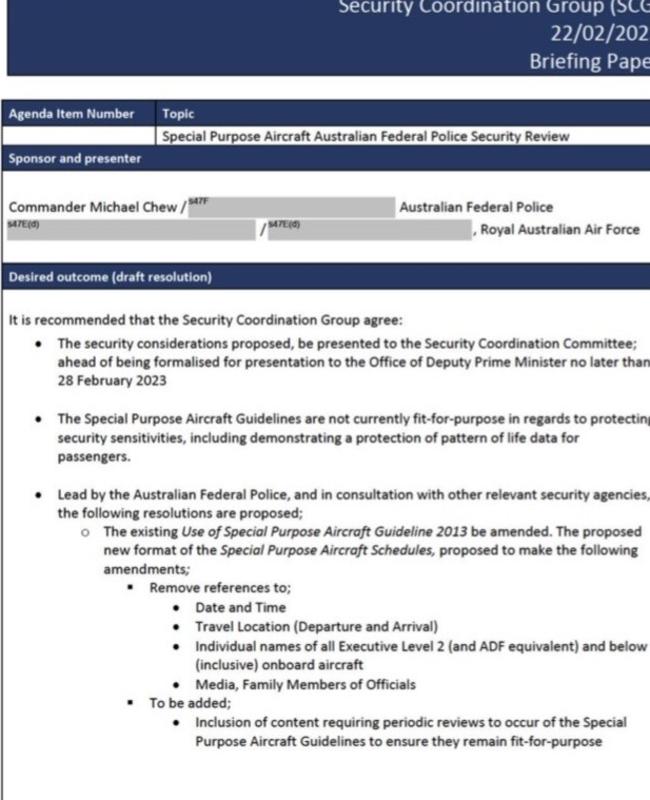
Bronwyn Bishop, Choppergate and the history of VIP flights
For decades, the reporting of politicians’ travel has been a regular affair from two sources – the Defence Department and the Independent Parliamentary Expenses Authority.
The Choppergate scandal that brought down former speaker Bronwyn Bishop emerged from these transparency guidelines. The revelation that Ms Bishop had used a flight to travel to a party fundraiser never would have come to light if it weren’t for these disclosure documents.
This week, she urged Mr Marles to “come clean” on where he’s been flying.
But two years ago under the Morrison government, the Defence Department suddenly stopped publicly releasing details about politicians’ use of its fleet of business jets, citing potential security threats. Just stopped.
The passenger lists are critical to transparency. They allow journalists to find out where the planes are going and who prime ministers and senior ministers are inviting along for the ride.
They also allow the Independent Parliamentarians Expenses Authority to check whether politicians are playing by the rules with the flights, and who has been invited to join them.
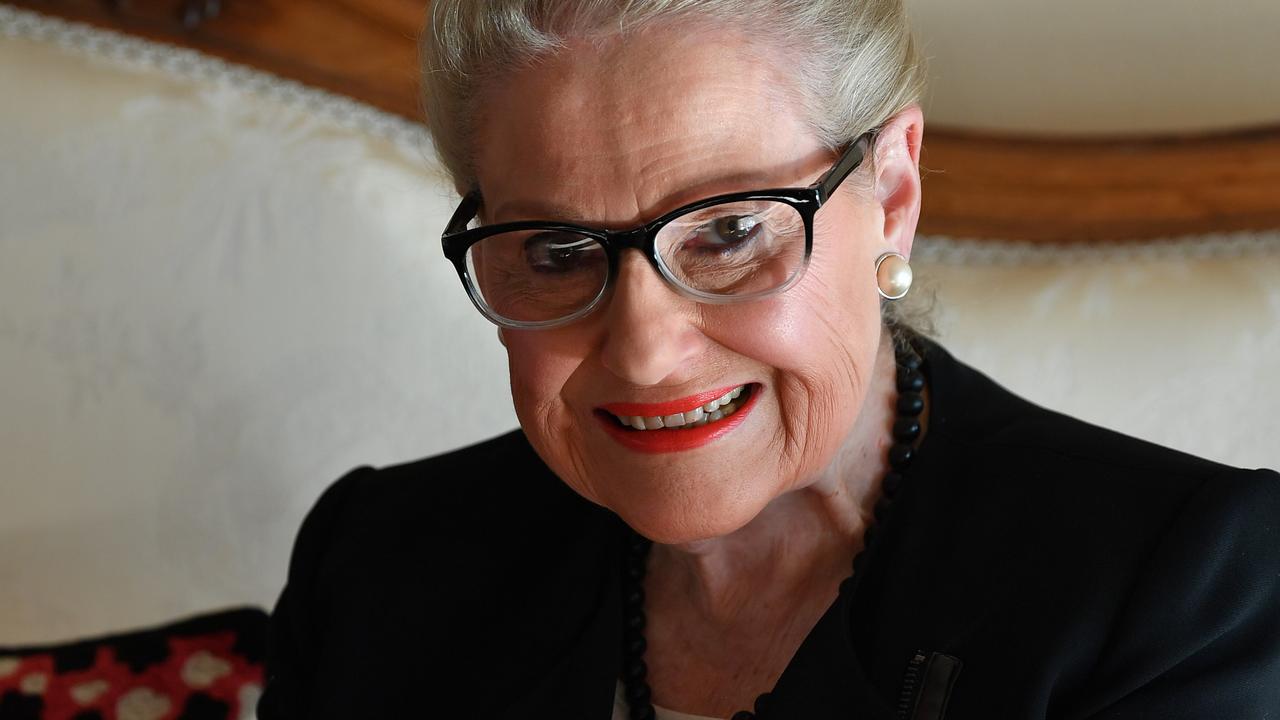
The VIP aircraft affair
Fifty years ago, a scandal in the Holt government that became known as the VIP aircraft affair prompted greater disclosure of the VIP flights.
In the lead-up to the 1967 Senate election, political controversy exploded after the prime minister, Harold Holt, offered vague and inaccurate answers to parliament about the VIP fleet.
“His political ineptitude, complacency and self-centredness lay at the root of the VIP affair,’’ historian Ian Hancock wrote in The VIP AFFAIR, 1966-67: The causes, course and consequences of a ministerial and public service cover-up.
“While there is no evidence of him being corrupt or having deliberately set out to deceive, his initial instruction to reveal as little as possible [about VIP flights], compounded by an extraordinary insensitivity to political fallout, allowed an essentially trifling matter to escalate into a major crisis.”
On May 13, 1966, Mr Holt replied to two parliamentary questions on notice in relation to No. 34 Squadron of the RAAF – the so-called VIP fleet.
“He stated that records were not kept for long and that information on the passenger complement of VIP flights was not available,’’ Mr Hancock wrote.
“Moreover, no records were kept of the destination of VIP flights. Holt’s answers were incorrect. The RAAF was required to retain two sets of records.”
Then-air minister Peter Howson became aware of the inaccuracies and sought to protect the Prime Minister but this then sparked allegations they had conspired to mislead parliament.
“Why did the question of who was travelling in VIP planes become such an important political issue in 1967?’’ Mr Howson later wrote.
“Nobody had thought to raise that question until after the opposition leader, Arthur Calwell, had in 1965 obtained approval for a VIP Aircraft to take him to an ALP conference in Perth.
“The government was slow to recognise that this group would take every opportunity to use its position in the Senate (where the DLP held the balance of power) to harry ministers.
“The question of how the government had handled the issue of passengers taken on VIP flights thus became an important political issue.”
Ultimately, John Gorton, the leader of the government in the Senate, was forced to table the “missing” passenger manifests.
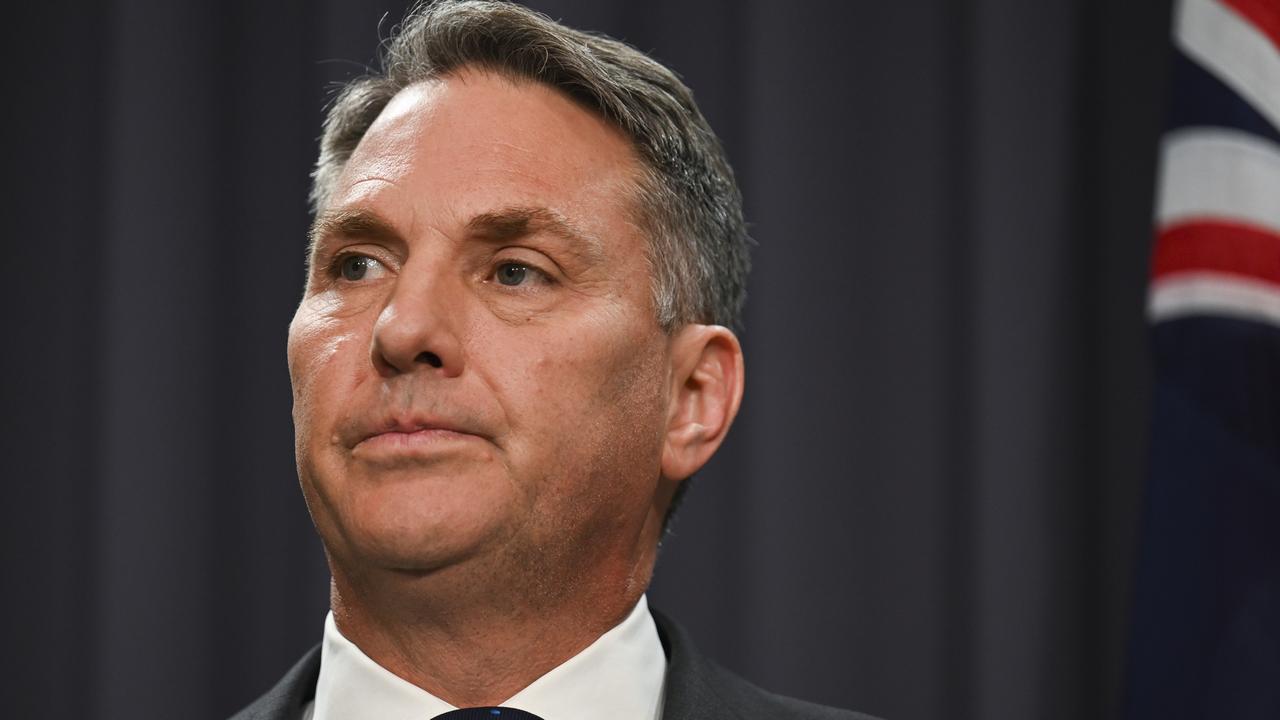
IPEA mess sparks Audit Office report
On November 8, 2022, the government also quietly announced that the publicly available parliamentary expenditure reports from July 1, 2022 would be postponed until the second half of 2023.
Special Minister of State Don Farrell has now brought in the Audit Office to get to the bottom of the mess.
“This should never have occurred,” he told news.com.au.
“From opposition, Labor raised multiple concerns over successive years with PEMS, including repeated questioning at Senate Estimates since the project’s commencement.
“In November 2022, I wrote to the Auditor-General requesting an full audit of the project, including its implementation under the former Coalition government and high cost.
“As I committed last year, reporting will return by the end of 2023, with the release of the July-September 2022 quarter for both certification and reporting.
“I look forward to the Auditor General’s findings, so we can ensure such mismanagement cannot happen again.”
This audit is now underway and will be completed in December of 2023.
samantha.maiden@news.com.au



